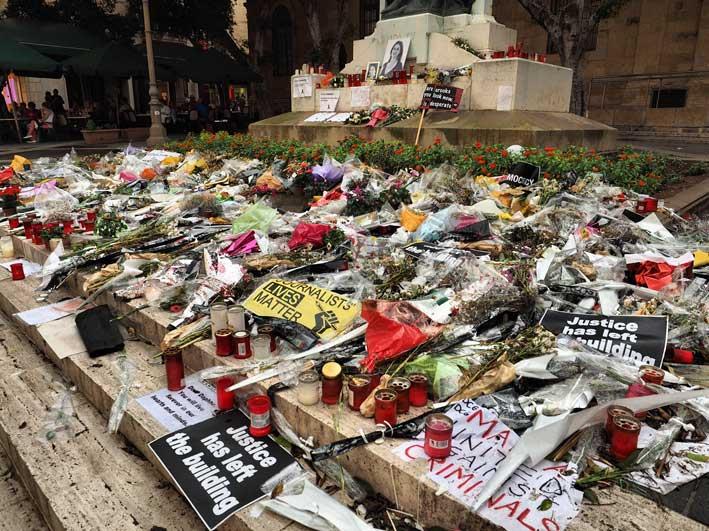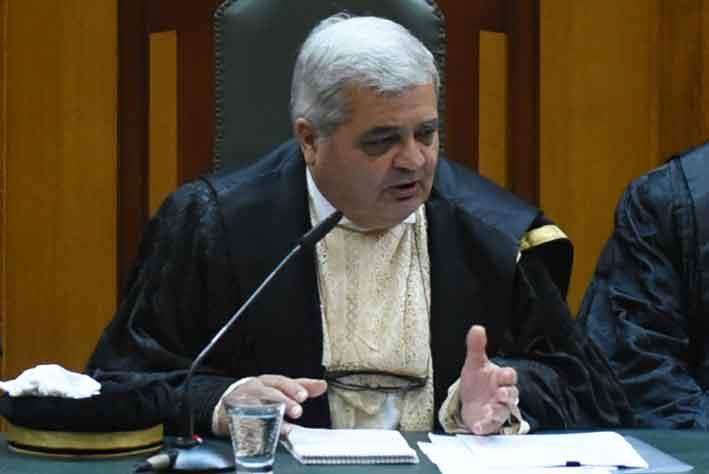The gloves have come off ahead of Tuesday’s European Parliament debate on the rule of law in Malta, with the lion’s share of parliamentary groups signing on to a proposed resolution calling on the Police Commissioner to investigate the Panama Papers revelations and the politically-exposed people (PEP) in the leaked Financial Intelligence Analysis Unit’s reports.
It also calls on the Maltese supervisory and judiciary authorities to investigate the licensing process of Pilatus Bank. A vote on the resolution will be held the following day.
The Socialists and Democrats, the grouping of which Malta’s Labour Party forms part, has prepared a backup, significantly watered down resolution to be put to a vote should the joint resolution fail to be passed.
But European Parliament sources speaking to this newspaper yesterday said that it would be “near to impossible for joint resolution to not be passed through the EP given the breadth of support it has received”.
The proposed joint resolution is backed by the EPP [of which the Nationalist Party forms part], the ECR, GUE/NGL, ALDE and Verts/ALE parliamentary groupings.

Tuesday’s debate comes in the wake of the assassination of journalist Daphne Caruana Galizia. It will be the second time the rule of law in Malta is debated by the European Parliament, the first having been called last June in the wake of the Panamas Papers allegations. It will be the third time that a contentious Maltese issue will be specifically treated by the EP, the first having been the highly controversial Individual Investor Programme (sale of citizenship) which had seen the vast majority of MEPs lined up against Malta’s stance.
The joint resolution
The proposed European Parliament resolution demands an urgent investigation into Pilatus Bank and Nexia BT and slams the lack of a police investigation into Politically Exposed Persons in the Panama Papers and FIAU reports.
It calls on the European Commission to launch an official ‘Rule of Law Dialogue’ with the Maltese government; for an international, independent investigation into the assassination of Daphne Caruana Galizia and expresses concern at the deterioration of the situation in Malta over the last years. It specifically calls on the Police Commissioner to investigate PEPs mentioned in the Panama Papers and FIAU documents, as well as on the Maltese supervisory and judiciary authorities to investigate the licensing process of Pilatus Bank.
The EU parliamentarians, through the resolution, say they “regret that several serious allegations of corruption and breach of anti-money laundering and banking supervision obligations have not been investigated by the police in Malta, which represents a threat to the rule of law in this Member State”.
The resolution also acknowledges several magisterial inquiries under way regarding some of the allegations. MEPs through the resolution would “specifically regret the fact that there has been no police investigation to date in Malta into the revelations regarding the Panama Papers and Politically Exposed Persons in the leaked FIAU reports, and notes that some of those named in the FIAU reports remain part of the government, calling on the Maltese Police Commissioner to open such an investigation.”
With regard to Pilatus Bank, the EU Parliament through the resolution calls on the Maltese supervisory and judiciary authorities to investigate the bank’s licensing process, “in particular regarding fulfilment of the fit and proper requirements for the management body of financial institutions, as mentioned in the Capital Requirements Directive, and to investigate the compliance of Nexia BT with the AMLD [Anti-Money Laundering Directive].”
The resolution also calls on the Conference of Presidents to create a ‘European Daphne Caruana Galizia prize for investigative journalism’ to be awarded annually for outstanding investigative journalism in Europe.
The motion for a resolution reads that Parliament regrets that the developments in Malta in recent years have led to serious concerns about the rule of law, democracy and fundamental rights, “including freedom of the media and the independence of the police and the judiciary”.
The resolution calls on the European Commission to establish a dialogue with the Maltese government regarding the functioning of the rule of law in Malta and to ensure respect for European values. It also calls on the Commission to keep Parliament fully informed of its assessment, while reiterating the need for a regular process of monitoring and dialogue involving all Member States in order to safeguard the EU’s fundamental values of democracy, fundamental rights and the rule of law.

EU Parliamentarians also take note, in the proposed resolution, of the comments made by Malta’s Chief Justice with regard to the rule of law “and support his assertion that without proper law enforcement the rule of law in Malta cannot be safeguarded”.
The MEPs express concern at the report drawn up by the PANA Committee following its visit to Malta, stating that the public institutions in charge of compliance, fraud and financial crime are highly politicised.
Another issue highlighted in the proposed EU Parliament resolution is Malta’s citizenship by investment schemes. They reiterated: “The frequently expressed concern by members of this House about Citizenship by Investment Schemes in general, including Malta and other EU Member States, and calls on Malta to make it clear who has purchased a Maltese passport and all the rights that come with it, and what safeguards are in place to ensure that all these new citizens have actually spent a year in Malta prior to the purchase.”
They also call on the Commission to monitor such citizenship programmes in Member States, “as the latter must have due regard for EU law when exercising their competence in the area of nationality”.
If passed, the resolution will be forwarded to the Council, the Commission, the governments and parliaments of the Member States, the Council of Europe and the President of the Republic of Malta.
The Socialist backup resolution
But should this joint resolution not be voted through on Wednesday, the Socialists and Democrats, of which the Labour Party forms part, has prepared a significantly watered down version.
The resolution, signed by Labour MEPs Miriam Dalli, Alfred Sant and Marlene Mizzi, among others, condemns the assassination of Daphne Caruana Galizia and calls on the Maltese government “to deploy all resources to bring her murderers to justice”.
It “acknowledges efforts undertaken by the Maltese Government to carry out independent investigations into the murder, which include the collaboration of Europol and other third-country forces, including the FBI and Dutch forensic experts”.
The Socialist resolution “registers the genuine concern that this case has aroused among its members, particularly given that it constitutes a direct threat to freedom of expression” and “notes the frequently expressed concerns by members of this House about citizenship by investment schemes in general in some EU Member States.”
Expressing concern “about the involvement of politicians in the Panama Papers scandal”, the resolution “invites the Maltese Government to be transparent with all relevant EU institutions on all matters arising from the aforementioned concerns, in an impartial, evidence-based and cooperative way”. It also “reiterates the need for a regular process of dialogue involving all Member States in order to safeguard the EU’s fundamental values of democracy, fundamental rights and the rule of law”.
The resolution also strangely notes: “The most recent polls among Maltese citizens show that the major institutions are trusted by the majority, with trust ratings of 72 % for the government, 69 % for the police force, 51 % for the Law Courts and 51 % for the media”.